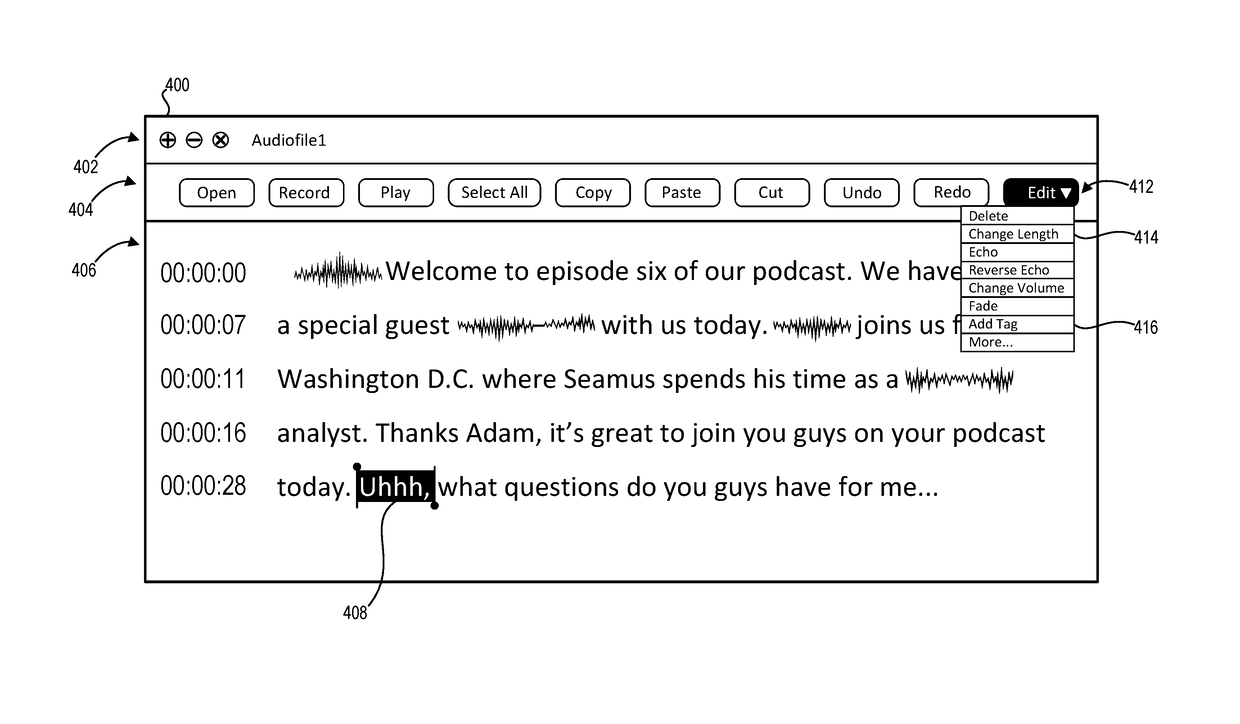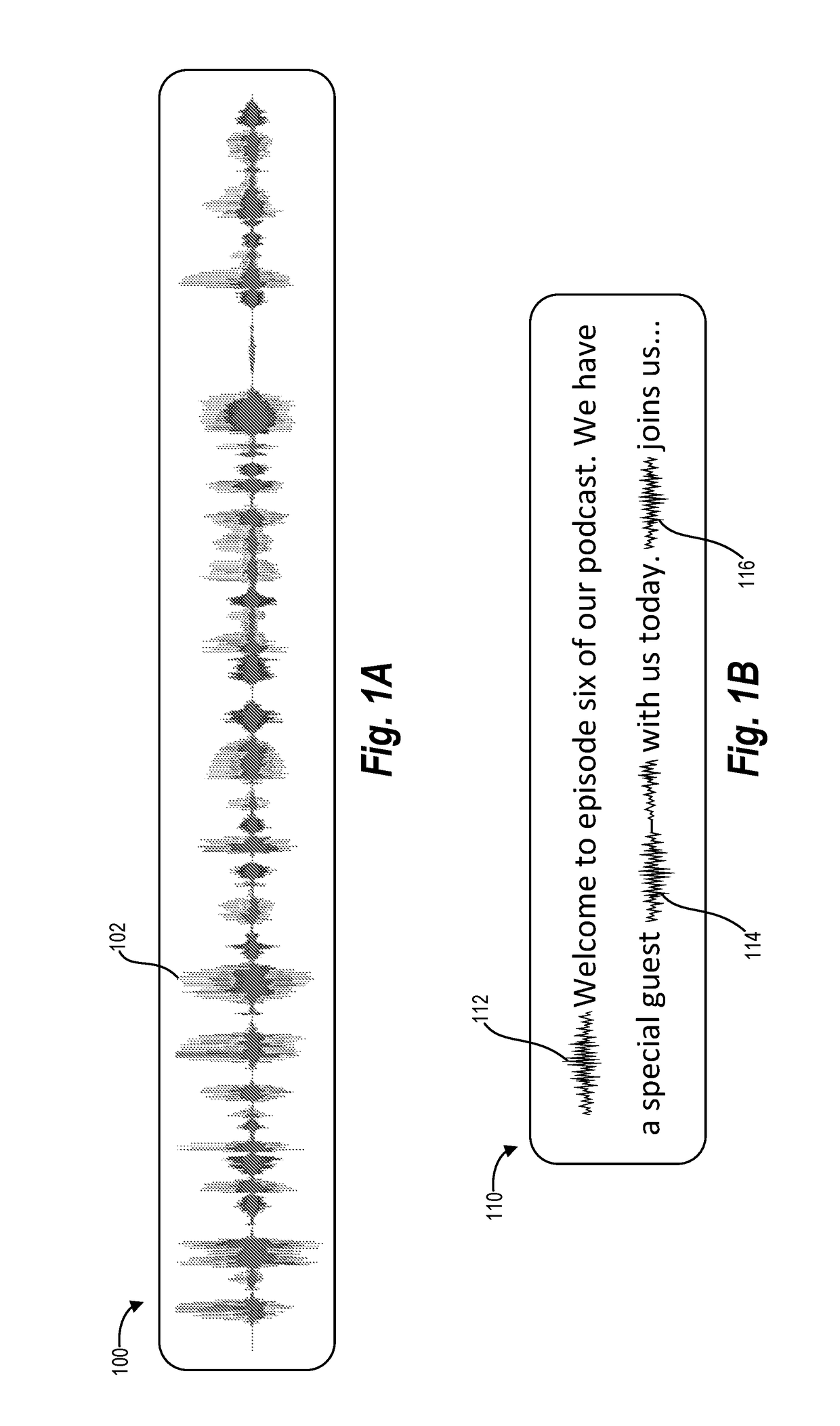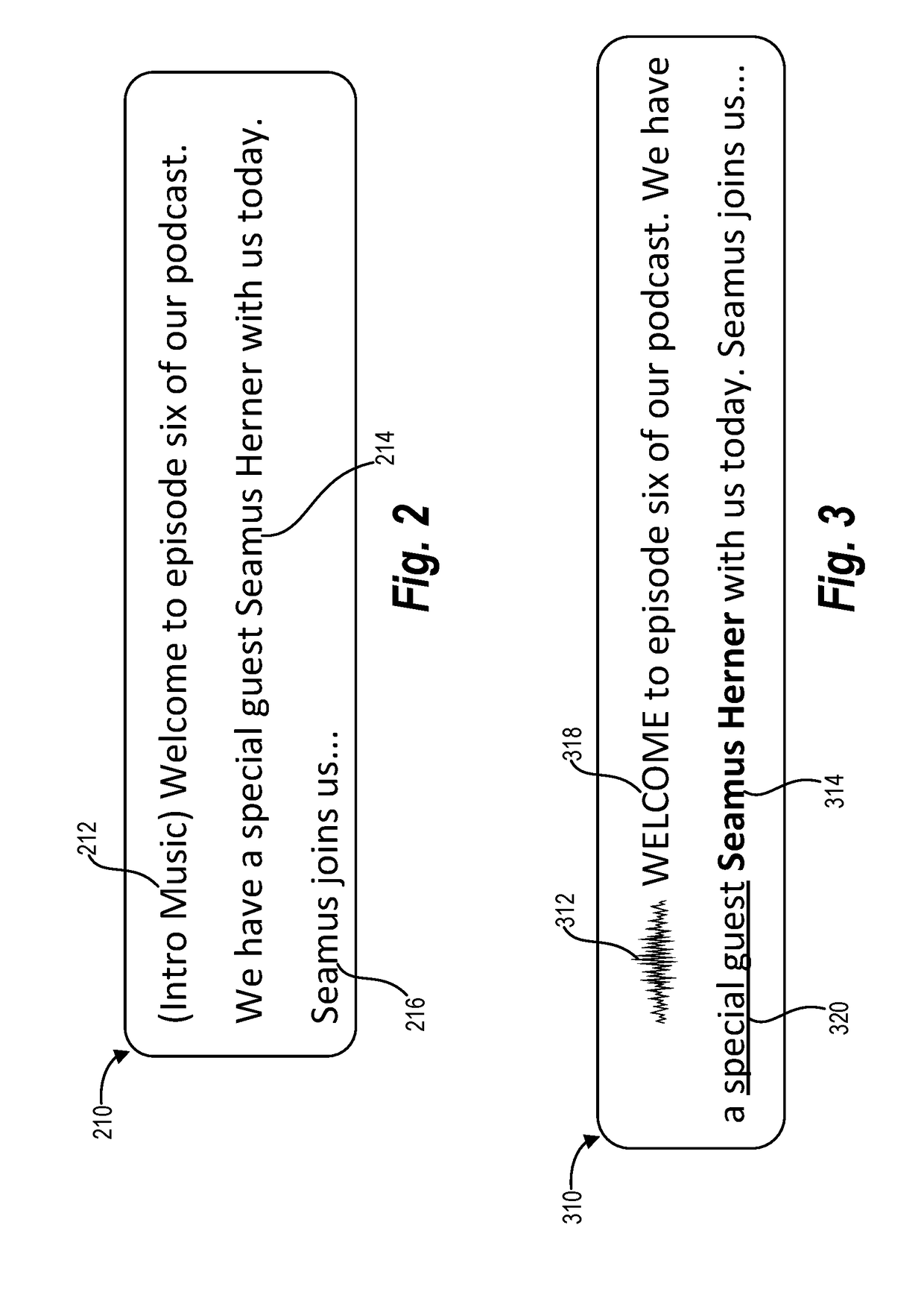Hybrid audio representations for editing audio content
a technology of audio content and audio representation, applied in the field of editing audio content, can solve the problems of unintuitive user experience, difficulty in interacting with the waveform to perform edits, and inconvenient use, and achieve the effect of simple and intuitive viewing and editing of audio
- Summary
- Abstract
- Description
- Claims
- Application Information
AI Technical Summary
Benefits of technology
Problems solved by technology
Method used
Image
Examples
Embodiment Construction
[0024]One or more embodiments of the present disclosure include a hybrid waveform system and corresponding methods for providing a user interface for interacting with audio recordings including spoken words. In particular, the hybrid waveform system provides a graphical user interface that includes a hybridized transcription of text converted from recognizable speech along with non-textual representations of non-speech-recognizable audio (e.g., pauses, ambience, background noise, etc.). The hybrid waveform system displays the non-textual representations as small waveforms inline with the transcribed text. In one or more embodiments, the non-textual representations provide audio information to a user that is otherwise missing from a conventional transcription. In many cases, the audio information is recognizable by a user from the visualization of the non-textual representations itself.
[0025]As an illustration, in one implementation, the hybrid waveform system identifies an audio seg...
PUM
 Login to View More
Login to View More Abstract
Description
Claims
Application Information
 Login to View More
Login to View More - R&D
- Intellectual Property
- Life Sciences
- Materials
- Tech Scout
- Unparalleled Data Quality
- Higher Quality Content
- 60% Fewer Hallucinations
Browse by: Latest US Patents, China's latest patents, Technical Efficacy Thesaurus, Application Domain, Technology Topic, Popular Technical Reports.
© 2025 PatSnap. All rights reserved.Legal|Privacy policy|Modern Slavery Act Transparency Statement|Sitemap|About US| Contact US: help@patsnap.com



